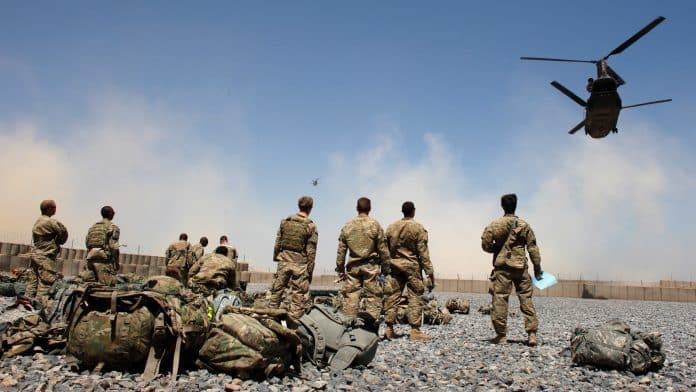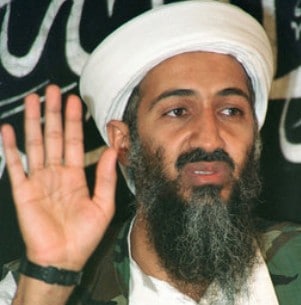“Bin Laden, with his wives and followers, flew to Jalalabad on an official plane provided by the then Afghan president, Burhanuddin Rabbani, who remains an associate of the current president, Hamid Karzai, as chairman of the high peace council”
by Hanan Habibzai
Finally, Bin Laden the most wanted man has been killed. The news is being celebrated across the United States. In fact, this is the biggest news in the world I have heard in the last decade.
At last, he was found in a non-Pashtun area in a small town which President Obama refers to as ‘deep inside Pakistan’, in a region where there is the key military academy of the Pakistan army surrounded the city.
His presence in Pakistan is not a surprise because many Al Qaida members, such as Khalid Shiekh and Al-libery, and a number of others were previously arrested or killed in that country. This makes it clear that Al Qaida is not in Afghanistan but in Pakistan.
Bin Laden was a priority in the American military invasion of Afghanistan, for that priority thousands of Afghan civilians have been killed during the operations. The civilian casualties since late 2001 in Afghanistan maybe three times higher than those of 9/11. The same may be the case with financial losses.
Nearly 3000s innocent men, women, and children were killed in a catastrophic attack on the world trade Center on 11th September 2001. This hurts anyone who believes in peace, harmony, and human dignity, as President Obama added.
The hunt for Osama resulted in the invasion of Afghanistan and the toppling of the Taliban regime. After the fall of the Taliban, the military struggled to capture Bin Laden and his friends moved to the villages of Afghanistan where he actually did not exist at all.
US-led troops were saying that they are in Afghanistan because Al Qaida is hiding in the country, but today it has been proven that the killing and blaming of Afghans as supporters of Al Qaida was an incorrect analysis for which Afghans witnessed their sweethearts being killed or tortured.
I was inspired by Jonathan Steele’s article in the Guardian newspaper where he portrayed an actual history of Bin Laden and his association in Afghanistan. After the collapse of the Taliban regime by the US military invasion, the south and east of Afghanistan are being punished for the wrong reason, the mistaken belief that Afghanistan was home to the 9/11 terrorists.
This is inexcusable.
Years ago, I listened to George Galloway challenging Jane Silk on Afghanistan. Galloway claimed that, of the terrorists, none were Afghans who went to the US or any other Western country to attack innocent citizens.
The argument, that Afghan villagers in the south and east and other parts of Afghanistan are challenging the US presence in Afghanistan as a justification for occupation and continued war is insane.
There are hundreds of thousands of Afghan refugees living in the West including the US and they have always condemned extremism and violence. The US seems to know nothing about Afghanistan and its people. Hilary Clinton has very clear arguments on the Afghan war against the Soviets. She has repeatedly stated that Al Qaeda is not an Afghan problem.
Yes, in the 1980s bin Laden came to Afghanistan and began to fight against Russians in the country. He founded the Al Qaida and fled Afghanistan and went to Sudan after the Soviet was defeated there, however, he becomes an Afghan problem when brought back to Kabul.
According to Steele ‘When he decided to leave Sudan, his previous headquarters, the Afghans who gave him a place to stay were the former mujahideen leaders who were fighting for their lives against the emerging new Taliban movement. Bin Laden, with his wives and followers, flew to Jalalabad on an official plane provided by the then Afghan president, Burhanuddin Rabbani, who remains an associate of the current president, Hamid Karzai, as chairman of the high peace council’.
Since then Osama becomes an issue and headache for Afghans, however, with the death of Al Qaida’s leader, a violent era of history ended and this is the time to talk about peace in Afghanistan rather than war in the country. Peace comes when the strategies include justice for Afghans too. Those prisoners of war who were barbarically massacred in the north of Afghanistan in 2001 and those who have been killed in suicide attacks and military reactions to those attacks must be given justice.
The war shattered people who long remained the victims of the war on terror. Now, after the death of the most wanted man, many Afghans may come forward and ask for the price for the losses in their country during the US campaign against Bin Laden.

Hanan Habibzai, an investigative journalist with more than ten years of experience in global journalism has covered the US invasion of Afghanistan, the fall of the Taliban regime, and post-Taliban developments, including the rise of militancy in the country.
MA in global journalism from Coventry University, Hanan writes on the conflict in Afghanistan and the regional politics, his work has been published by the BBC Afghan Stream, Pajhwok Afghan News, Reuter’s news agency, the Washington Post, Veterans Today, several local and the global media agencies, Including contribution in a journalism book Afghanistan War and the Media: Deadline and Frontline (2010), edited by R, Keeble & J, Mair, Hanan’s academic work is published around the world.
ATTENTION READERS
We See The World From All Sides and Want YOU To Be Fully InformedIn fact, intentional disinformation is a disgraceful scourge in media today. So to assuage any possible errant incorrect information posted herein, we strongly encourage you to seek corroboration from other non-VT sources before forming an educated opinion.
About VT - Policies & Disclosures - Comment Policy





